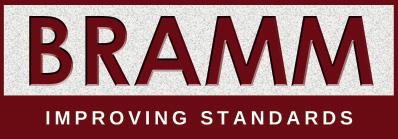
4 minute read
Editorial
Self-Care is Key
Welcome to the Autumn edition of the Journal. What a year it has been so far, where, without doubt, we have been experiencing the biggest health crisis the world has seen within our lifetime. During this global pandemic, it is clear we have already suffered a huge loss of life. The coronavirus has no boundaries and it targets everyone, regardless of age, gender and financial status. It doesn’t discriminate, and for those families that have found themselves unexpectedly bereaved, it doesn’t allow for the process of grieving. Unlike some events in life, there is no “pause” button on grief.
Advertisement
We could never have imagined a time where the doors of the Funeral Director are closed, arranging a funeral over the phone without the personal interactions we would normally expect, the absence of a shoulder to cry on and the denial of being able to physically view or say one last goodbye. It is extremely difficult for those working on these frontline services to be forced to deny the bereaved when, for all of us, it is the exact opposite of what we are here for.
COVID-19 is causing many people to die before their time. This can be very distressing for those who work within our sector and who may feel they also have to support, not just those families coming through the gates, but also their friends and family. You may also feel anxious that, despite safety measures being put in place, you are exposed to a greater chance of catching the illness, adding another layer of anxiety that may sit silently below the surface whilst we are just “getting on with it”.
As those of you witnessing this first hand, and who may also have had personal experience of either having the virus itself or losing someone to it, it can be extremely distressing and can take its toll emotionally as well as physically. As bereavement workers we are under pressure like never before and it can be hard to prioritise your own mental health when you’re caring for others in such a difficult situation – but your wellbeing matters.
Just like the safety procedures on aeroplanes, the advice is always, in cases of emergency, to place the oxygen mask on yourself first before attempting to help others. This is exactly what we must do as we slowly emerge from this. We are only now just starting to take stock and reflect on the past few months. I know from speaking with members, there have been many of you that have worked relentlessly, often working long hours , to ensure all funerals took place and the needs of the bereaved could be met as much as possible. It’s only now that the build-up of pressure and stress can take hold and can have a negative effect on your mental health. There has often been a stigma attached to admitting that we need help. This can be perceived as a weakness and can make us feel vulnerable – better to put a “brave face” on things and carry on. Fear and anxiety can be overwhelming and workplace stress can lead to burn out. How you cope with these emotions and stress can affect your well-being, the well-being of the people you care about, and colleagues that you work with. It is critical that you recognise what stress looks like, take steps to build your resilience and manage job stress, and know where to go if you need help. Self-care is the key and should be a priority for all employers, even more so under these unusual and changing times.
Where to go for help should be clearly sign posted for employees, an open dialogue in the workplace should be encouraged and, if communicated effectively, will help break down those walls that divide us. We should be encouraged to talk openly and honestly with our employers and our work colleagues and may even find that you are not alone in your feelings. You cannot control what is happening around you, but you can control how you respond to it.
With enforced social distancing, everyday communal interactions – a handshake, a shared laugh, even the subtle pressure of shoulders as we stand on trains and in queues – is noticeable in their very absence. In losing this closeness, we may learn appreciation and imagine new possibilities for mutual support. We need physical distancing, not social distancing. We need to be more socially connected now and not more isolated. The use of media platforms such as Zoom, Skype and Microsoft Teams has at least, in part, kept us connected. As I read somewhere, Ashes to Ashes: adjust adjust.
Our training partner, Heartled Wellbeing can offer coaching, counselling and psychotherapy consultations via Skype, FaceTime, WhatsApp and telephone appointments at a reduced rate for ICCM Members. Annie Raven-Vause will be available from 5pm – 8pm Monday to Friday should anyone wish to receive support. Francis Raven-Vause, who is a fully insured NLP Master Practitioner, is also offering coaching and stress management from 09.00 – 18.00 Monday to Friday. Details of what Annie and Francis can offer, and their contact details, can be found on the Heartland Wellbeing website https://heartledwellbeing.com/
I would encourage you all to take some time for yourselves. If this pandemic has taught us anything, it is to recognise and understand what is important in our lives.








